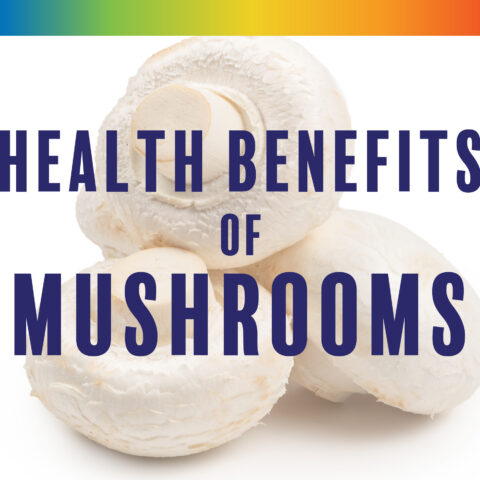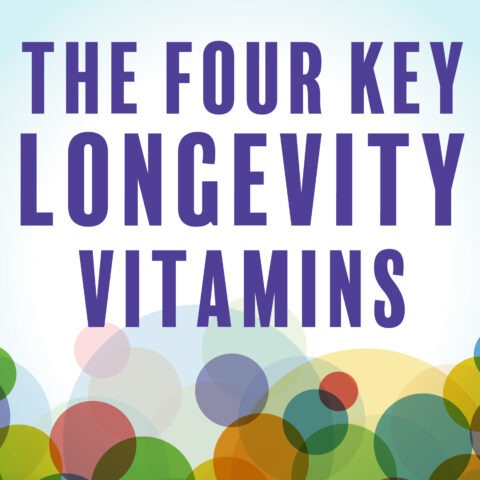Healthy Aging: Study Shows High-Carbohydrate Diets Promote Dementia

Independent science continues to demonstrate the long-term negative health impact of a high-carbohydrate diet. It has already been linked to diabetes, heart disease, metabolic syndrome, Crohn’s disease, irritable bowel syndrome (IBS), and other ills. Now, a grain- and sugar-rich conventional Western diet has been shown to promote dementia by destabilizing neural networks.
A March 2020 article in the journal PNAS, authored by Lilianne R. Mujica-Parodi and others [1], compared how neural networks respond to two fuels—glucose and ketones. The authors determined that brain “aging,” the gradual loss of connectivity between different neural regions, begins much earlier than we previously thought—around age 47—and is strongly influenced by diet.
The study has profound negative implications for long-term reliance on simple sugars and raises questions about the conventional health dogma that “the brain is dependent on sugar.” [2]
Comparing ketones and glucose in neural network stabilization
The researchers used MRI extensively to measure blood flow and regional electric connectivity within the brain of each participant throughout the study. These were compared to existing databases of MRI results from all age groups as a baseline. The researchers also measured cognitive scores for each participant. Results were combined to yield a “brain age” score, with increased age expressing increased neural destabilization.
Test subjects, which included both healthy controls and type II diabetes patients, were examined in rested/fasting states, and after drinking weight-tailored doses of either a glucose or ketone-ester liquid mix. Participants followed both “standard” and ketogenic diets during the study.
The MRI results showed that when the brain uses glucose for energy, neural networks destabilize. Energy peaks quickly and then falls off.
Ketone-derived energy was more sustained (steady for 90-plus minutes, post-dose), and stimulated increased network connectivity. Ketones also increased available energy by 27 percent compared to an equivalent dose of glucose. Uptake of ketones for energy was shown to stabilize neural networks. Increased stabilization could be observed within 30 minutes from ingestion of the ketone-ester compound.
Interestingly, the brain used ketones for energy first when ketones and glucose were both available.
Results show that “brain age” can be directly influenced in real time by available fuel sources. This immediate positive effect of dietary intervention on impaired cognition has been documented elsewhere, including the work of Dr. Dale Bredesen [3,4] and Dr. Mary Newport [5,6], among others.
Glucose, diabetes and dementia
The study is not the first to support the view that chronically elevated glucose levels cause insulin resistance, or more significantly, that elevated glucose, insulin resistance, and pre-diabetes presage dementia. [7-9]
As the authors of the PNAS study stated, “Dietary increase in glycemic load over the past 100 years has led to a national epidemic of insulin resistance (type II diabetes), which has been identified by several large-scale epidemiological studies as an early risk factor for later-life dementia.”
As metabolic disorders set in, a conventional high-carbohydrate diet can starve the brain, despite too much fuel being available. The brain gradually loses the ability to metabolize the available glucose and begins to triage resources—even to shrink, as it adapts to a low-energy state—progressing toward dementia. [3,5] As a result, some researchers now refer to Alzheimer’s disease as type III diabetes. [10]
These are not obscure or insignificant issues:
- Diabetes currently afflicts 10 percent of the world’s population. [11] This includes 34.2 million people in the United States, where an estimated 7.3 million sufferers remain undiagnosed. No ethnic or age group is immune, [12] and the American Diabetes Association estimates that there are 1.5 million new diagnoses every year. [13]
- Diabetes is widely considered the seventh leading cause of death, but a 2017 study published in PLOS ONE estimated that diabetes is the third leading cause of death in the United States. [14] It is also a widely acknowledged co-morbidity factor for rapid decline and poor prognosis with COVID-19. [15]
- Dementia, particularly Alzheimer’s disease, is currently the sixth leading cause of death in the U.S., and the fifth leading cause among those 65 or older. Five million Americans have Alzheimer’s today. By 2050 this number is expected to triple. [16]
- This year, dementia and Alzheimer’s care costs will be 305 billion dollars, running as high as 1.1 trillion by 2050, according to the Alzheimer’s Association. [16]
- Exercise triggers ketosis, especially in a fasted state—as the body begins to metabolize fat for energy after exhausting stored glycogen. (This level of exercise in a fasted state may be too much for many readers. Please consult your physician before taking up any new exercise regime.) Regular exercise, possibly combined with ketone supplements, could help keep the brain oriented to ketone metabolism.
- Coconut or MCT oils increase ketones available to the brain. Dementia patients have been observed to respond quickly to ingesting moderate amounts of these oils, showing increased lucidity and reduced stress or disorientation. [5,18]
- Eating nothing at all encourages the brain to use ketones. Increased ketone uptake was observed in the PNAS study in resting, fasted participants. Like exercise, fasting stimulates the liver to use up stored glycogen and begin converting body fat into ketones. Fasting also promotes autophagy, or “housecleaning”, on a cellular level as inactive or older sub-cellular components are metabolized for energy or to produce new cells.
Dr. Dale Bredesen, a neurologist and leading Alzheimer’s researcher, states that elevated glucose and insulin are “two of the most important risk factors for Alzheimer’s disease.” [3] Dr. Bredesen’s treatment protocol for Alzheimer’s, shown to be successful in studies, also focuses on diet-promoted use of ketones to stabilize the aging brain. [4,17]
Dietary implications
But is a “ketogenic” diet the only solution? The study shows that the brain preferentially uses, and benefits from using, ketones as fuel even when glucose is available—that is, without being in ketosis. Ketone-ester oral compounds were highly effective in the study, and are available commercially. None are approved for clinical or therapeutic use, but the FDA allows marketing them as athletic supplements.
Other strategies include:
The elephant in the room is chronic over-ingestion of high-carbohydrate foods like grains, sugars, legumes, and most conventional dairy products. Simply eliminating these brain-destabilizing ingredients will increase reliance on fat for energy and result in mild or periodic ketosis.
And, while hard-core ketogenic diets reduce the carbs, and are therapeutic for many health conditions, they don’t appear sustainable in the long term. Leading researchers like Dr. Loren Cordain and Dr. Terry Wahls have shown that year-round, consistently measurable (using urine strips or blood tests) ketosis may cause serious health problems. [19,20]
The common-sense solution is a lifestyle based on intermittent fasting, regular exercise, and consistently low-glycemic whole foods. This will promote brain health and general physical well-being—and can be maintained indefinitely. Adding ketone supplements, or MCT and coconut oil, or all of these, could enhance brain stabilization even further.
David Whiteside
David Whiteside devotes his time to researching and promoting awareness of Paleo and ancestral dieting in the senior community.
More About The Author



